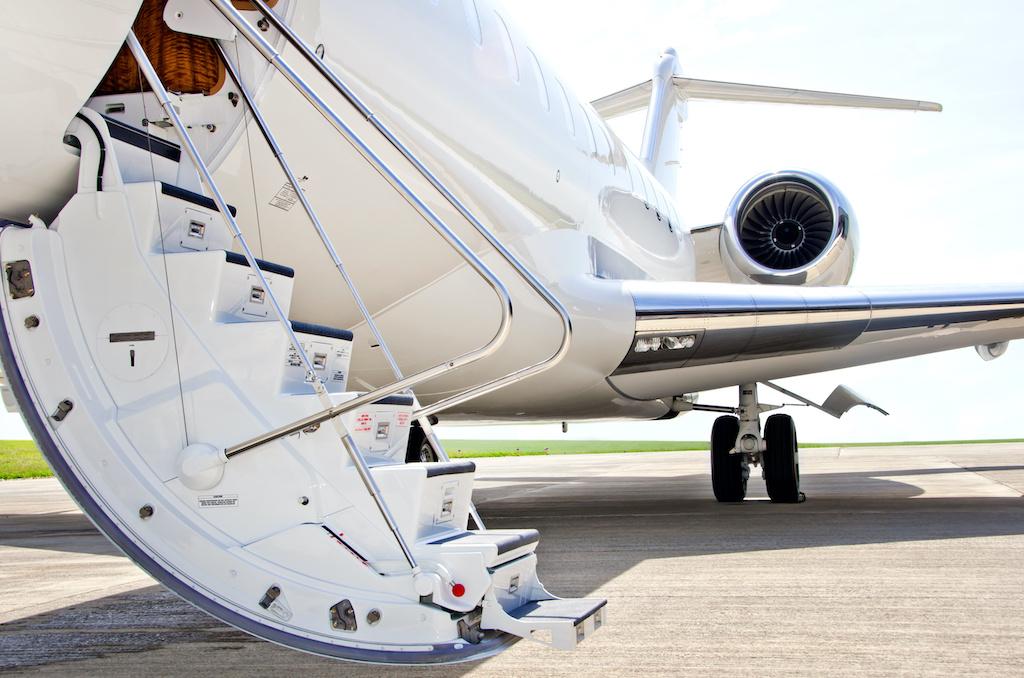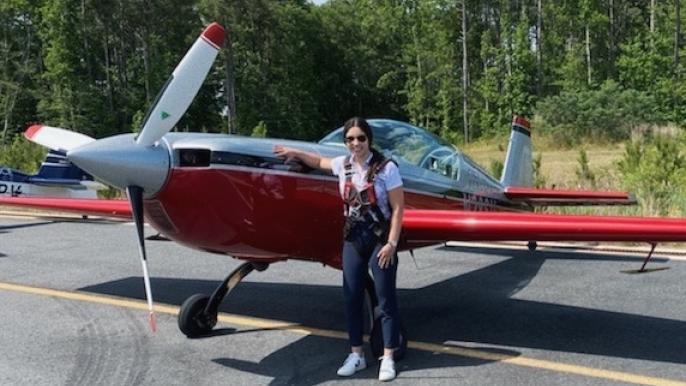Discovering Business Aviation's Future Leaders

Recruiters for the nation's airlines tend to have it a little easier than their business aviation compatriots when attracting and hiring pilots sorely needed for open positions.
And while some airline pilots may eventually assume an airline leadership role, most simply retire when the time is right. Business aviation doesn’t work quite the same way, especially for those interested in more than a flying role. Business aviation leaders normally mature from within a flight department.
Yet many young people aiming for pilot careers are more familiar with the airlines and not enough are aware of the opportunities offered within business aviation.
The COVID-19 pandemic in the U.S., however, is raising awareness of business aviation and the benefits it brings.
New entrants to private aviation are buying fractional shares, chartering flights, and in some cases, buying their first private aircraft because of health concerns, convenience or controlling the travel experience.
Despite the increased use of business aircraft, the business aviation industry is still wrestling with how to attract young people to ease the pain of personnel retirements and expansions.
As it turns out, an increasing number of college students are beginning to discover business aviation and see it not simply for its pay and benefits, but for the lifestyle it offers, one quite different from the airlines.
A business aviation career already includes a wide range of learning opportunities not available in the airline world, such as the chance to impact a flight department’s outcomes, like assuming the role of a safety manager.
But there’s more.
Michael Fox is a pilot who understands the value of an internship program.
“There is a need for internships for our industry so young people can learn what business aviation has to offer," Fox says. "It’s not something that’s promoted in colleges. I think I’m a walking example though since I was actually a Parker-Hannifin (Corp.) intern back in 2007.”

Fox is now that flight department’s assistant chief pilot in Cleveland and a certified aviation manager, where he’s also in charge of pilot hiring.
Early in Fox’s career, he decided a multi-year commitment to the military wasn’t for him.
“I’ll choose the next best thing...being an airline pilot, because that’s all we knew," Fox says. "I still believe that’s the case today.”
The chief pilot at his undergrad alma mater, Kent State, suggested Fox look at the Parker-Hannifin internship for which he was selected.
After a few years of regional airline flying to build experience, he was hired full-time at Parker-Hannifin, where he’s been for more than 10 years.
An intern at Parker-Hannifin can experience business aviation in action by “spending time with our dispatcher, our line service and maintenance people, as well as in the flight department," he says.
That kind of variety drew Grace Kane toward a business aviation track rather than the airlines.

Kane, whose aunt flies a King Air for a medevac company, graduates in May from Parks College of Saint Louis University.
She’s been the recipient of several paid internships during her college years, one as a data analyst with Garmin International, and two others in flight departments at Pentastar in Detroit and at Parker-Hannifin in Cleveland, where Fox is employed.
At Pentastar, Kane took on management tasks for the company’s Part 135 air ambulance division.
“When you get a call for air ambulance, you must be quick, so I would check the weather and verify it was good to go before we dispatched them because we also had operational control for the flight," Kane says. "I was able to play a big part in that job. It was really interesting to be a part of a whole other level of aviation.”
She also worked behind the scenes, looking at weather and tending to requests for catering, rental cars and other passenger needs.
At Parker Hannifin, she also worked with the schedulers and the pilots.
“I also got experience working alongside maintenance and witnessing pre-and post-flight aircraft checks," she says. "While working with the scheduler, I saw the steps it takes to build both domestic and international trips and get all the passenger and crew details organized.”
A vice president of flight operations for another company, who asked not to use his name, said there are some unique challenges to recruiting for business aviation.
“Unlike the airlines, being able to articulate a very strategic rotation of development and advancement for a young person coming into business aviation is key to our ability to get them to come on board, even more so than it was 10 years ago," he says. "We need to be sophisticated in that space if you want to land and retain top talent.”
For Kane, part of the allure of business aviation was also the opportunity to build professional relationships while experiencing the culture and atmosphere of what her career could be.
“Because Parker-Hannifin cultivates a culture where no one’s voice went unnoticed, I was able to see the elements of what I’d look for in a future corporate flight department," she says. "A person’s willingness to mentor an aspiring business aviation professional speaks a lot to that department’s values.”
Some of the experiences she had at Parker-Hannifin didn’t hurt either; like the opportunity “to fly the Challenger 350 simulator at Flight Safety and head down to Chesapeake, Virginia for upset prevention, recovery training in an Extra 300," Kane says.
An important element in the hiring process is, “a true passion for wanting to get somebody to their destination, safely and efficiently … a passion for wanting to do everything possible to make sure they make someone’s day that much easier," says Fox.
"Our passengers are not technically customers to me, but we all need to be playing for the same team. A joke we always use to describe business aviation is (to) tell applicants that at the airlines, you climb up the steps and make a left turn. In business aviation, we go up the stairs and turn right to interact with the passengers.”
Early on, Kane too saw the value in building and maintaining professional relationships, even online during her internships. She points to LinkedIn as an important resource.
“A good relationship is a mutually beneficial one in which two people can learn from each other," she says. "It’s also important to remain in touch and find out how those other people are doing even though that might not always be easy. In a strong professional relationship, the other party wants to continue motivating and instilling confidence in that new person, helping them along to reach their goal. There are so many possibilities in business aviation for students to succeed today.”




